Electric vehicles will have a range of more than 500 miles within the next 10 years.
That is the view of Martin Eberhard, a man who sprang to prominence when he co-founded the Tesla electric sports car company in July 2003.
One of the world’s most forthright advocates of electric cars, he was ousted from control of Tesla in 2007 and became electric vehicle engineering director at Volkswagen’s Electronics Research Laboratory (ERL) in Palo Alto, California, in early 2009.
Here, he answers Autocar's questions about the future of EVs in general and about VW’s electric offerings in particular.
What does VW’s ERL do, and where do you come in?
The ERL is the Volkswagen Group’s biggest R&D centre outside of Wolfsburg. We employ around 100 people, we opened in 1998, and we focus mainly on the development of new driver assistance systems and new human-machine interface technologies, as well as improving the multimedia functionality and connectivity of Volkswagen Group cars.
Read more on the Audi A8's Google Earth sat-nav
We developed the new Google Earth functionality for Audi’s A8 and A7 sat-nav systems, and worked with Stanford University on VW’s driver-less DARPA Challenge cars. We’re also working on the development of the power electronics and battery systems for Volkswagen Group’s forthcoming breed of electric cars, which is where I come in.
Which EVs are you working on right now?
Our biggest projects at the moment are the development of the lithium-ion battery packs for Volkswagen’s Blue-e-motion Golf, the E-Up city car and the Audi e-tron. We’re working exclusively with ‘18650’-type lithium-ion cells. They’re the same size as the ones you’ll find in most laptop computer battery packs; that’s why they’re referred to as ‘consumer cells’.
See the official pics of the electric VW E-Up city carRead more on the VW Golf Blue-e-motion
Why use laptop batteries when other manufacturers are developing bespoke cells for automotive applications?
Because 18650 cells are at the leading edge of battery development, and by using them we can benefit from state-of-the-art technology straight away. Put simply, 18650s develop faster than any other kind of battery because there’s more demand for them; the industry is already making two billion of them a year.

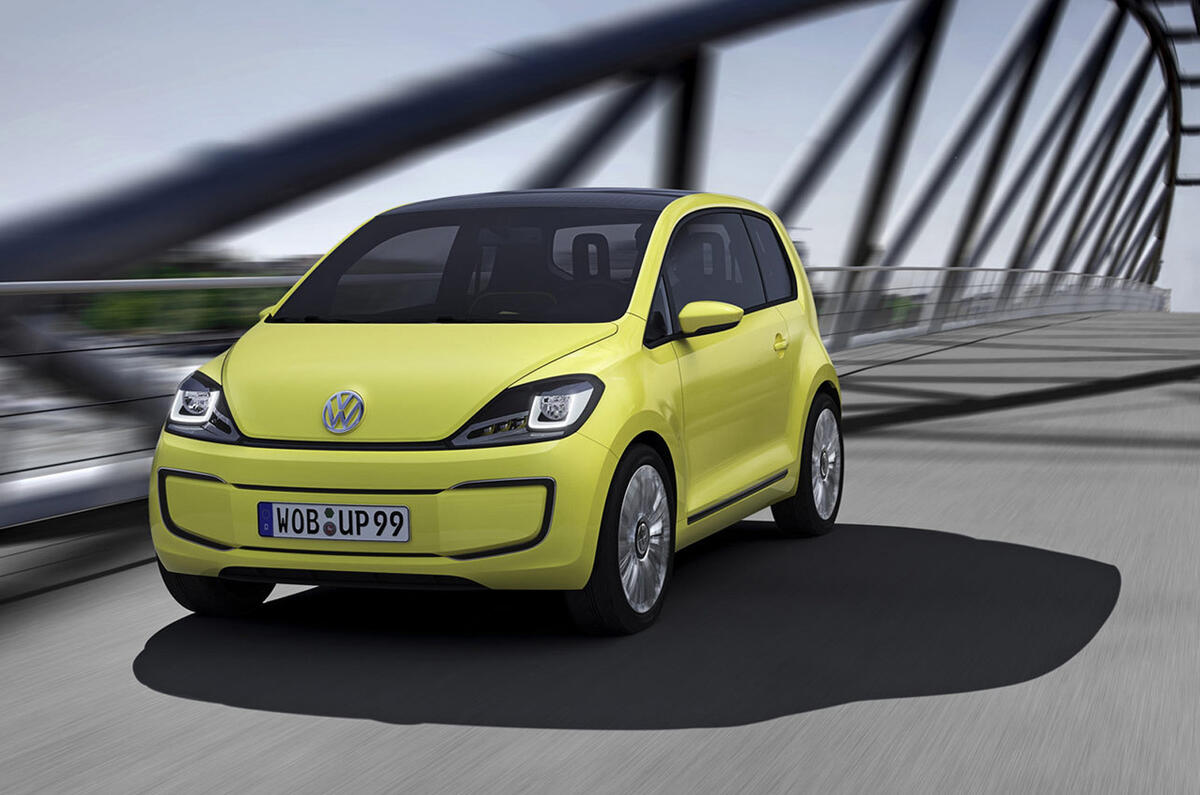
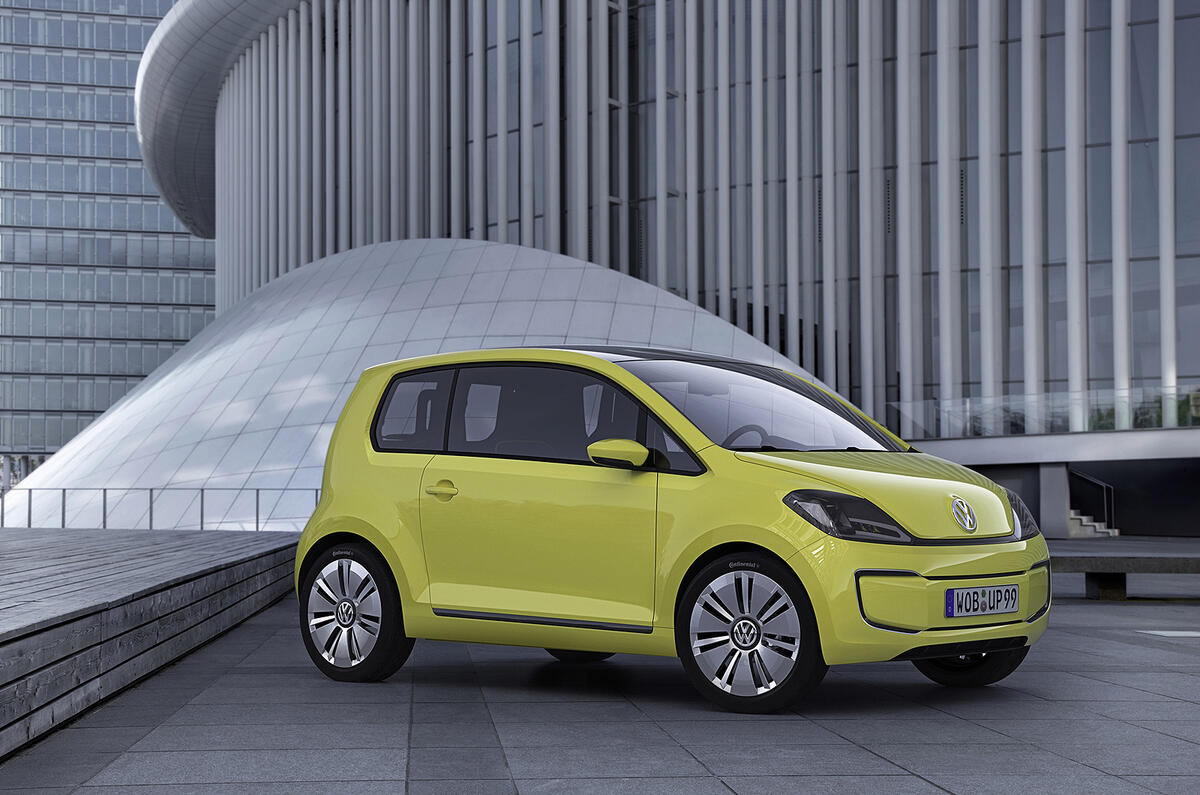
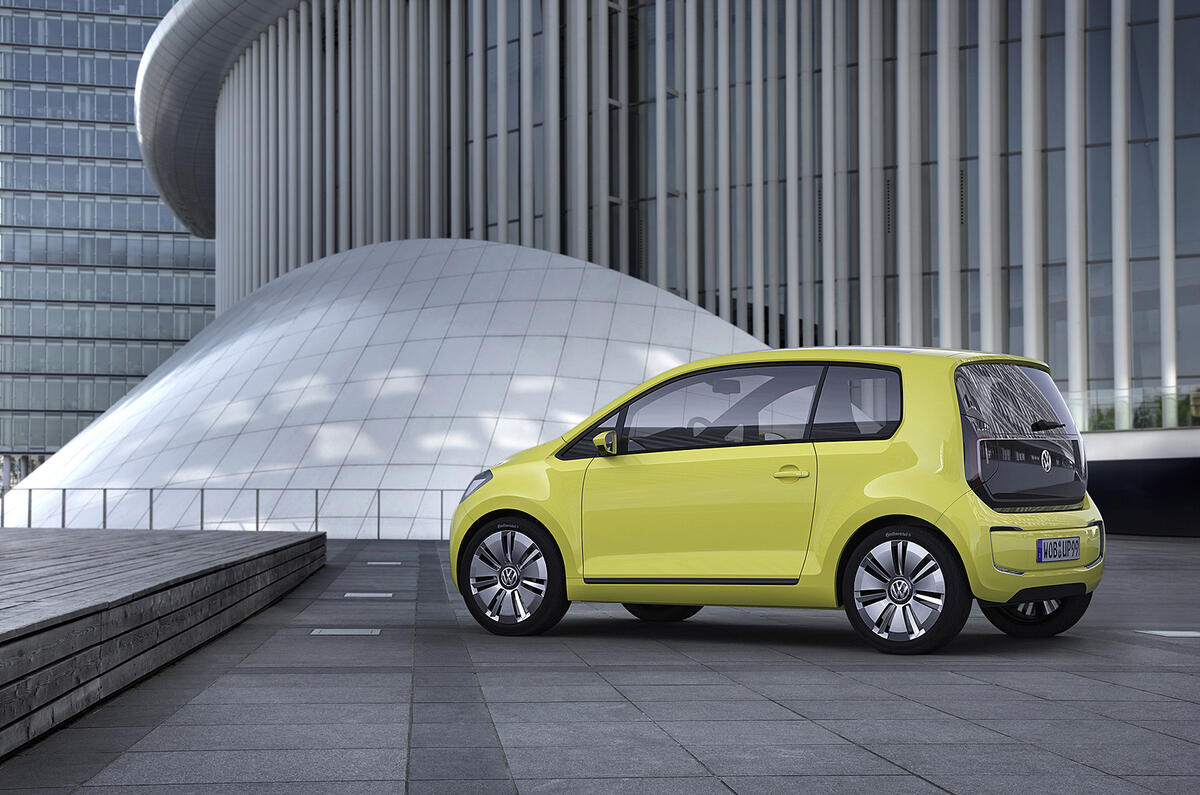
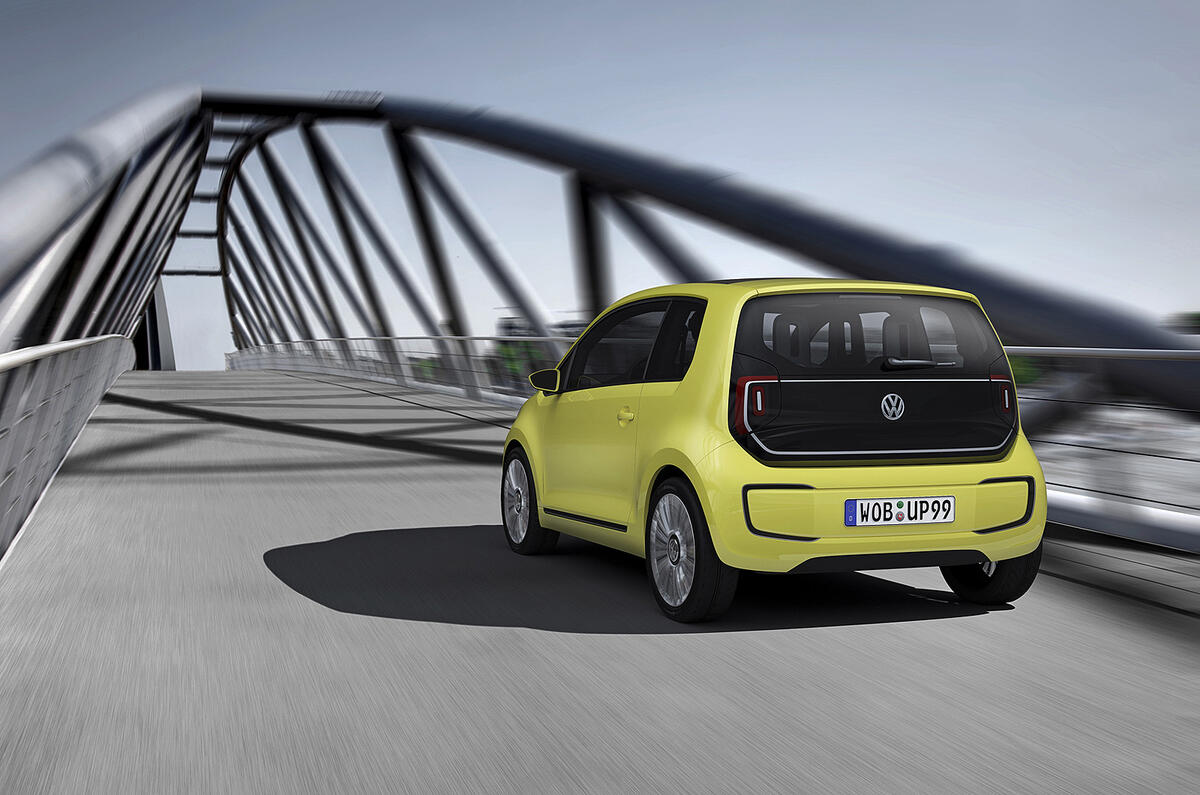
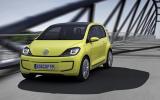
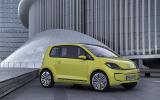
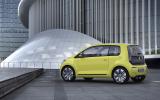
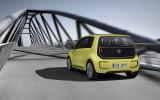



Join the debate
Add your comment
Re: VW: '500-mile EVs by 2020'
Nor with AC in summer.
Heater as well as AC will drain the battery pack about the same as the driving itself. Hence your range will be only 50% of the theoretical 500 most days/months of the year. Still, 250 will cover actual driven daily kms for a considerable part of all car owners. And the entire roof covered with solar panels might bring the range back to 500???
Quite another matter is: Your smartest ecological and economical choice is to pick a job in walking/bicycling distance from your home. Or if you prefer buy your new home in walking/bicycling distance from your work place (Being a lousy paid teacher this is how I have been able to avoid starvation so far).
Re: VW: '500-mile EVs by 2020'
not with the lights, radio, heater, demister and wipers on
Re: VW: '500-mile EVs by 2020'